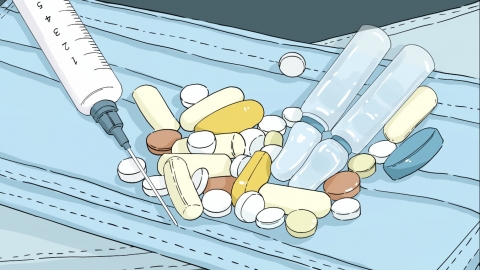Can metronidazole tablets control intestinal parasites?
Generally speaking, whether metronidazole tablets can control intestinal parasites depends on the specific type of parasite. If discomfort occurs, timely medical consultation is recommended. Detailed analysis is as follows:

If the intestinal parasites are specific protozoa such as Entamoeba histolytica or Giardia lamblia, metronidazole tablets can exert effective control. Metronidazole can penetrate the cell membranes of these protozoa and inhibit their DNA synthesis, thereby killing the parasites. It has clear therapeutic effects on intestinal infections caused by these protozoa, such as amoebic dysentery and giardiasis, and can effectively alleviate symptoms such as diarrhea and abdominal pain.
If the intestinal parasites are helminths such as roundworms, pinworms, or tapeworms, metronidazole tablets are unlikely to be effective. These worms have different physiological structures and metabolic mechanisms compared to protozoa, and metronidazole lacks specific killing effects against them. In such cases, anthelmintic drugs specifically targeting worms, such as albendazole or mebendazole, should be used. Improper use of metronidazole may delay treatment.
To avoid unnecessary harm to the body, it is recommended to use or discontinue medications under the guidance of a qualified physician. During the course of treatment, it is important to develop good lifestyle habits, such as washing hands before meals and after using the toilet, avoiding consumption of raw or unclean food, maintaining dietary hygiene, and completing the prescribed treatment regimen as directed by a healthcare provider to prevent interference with recovery.








